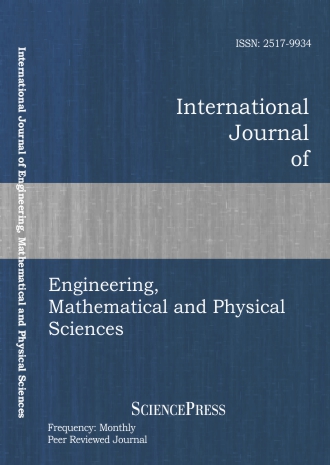
Scholarly
Volume:5, Issue: 4, 2011 Page No: 613 - 616
International Journal of Engineering, Mathematical and Physical Sciences
ISSN: 2517-9934
Alternative Convergence Analysis for a Kind of Singularly Perturbed Boundary Value Problems
A kind of singularly perturbed boundary value problems is under consideration. In order to obtain its approximation, simple upwind difference discretization is applied. We use a moving mesh iterative algorithm based on equi-distributing of the arc-length function of the current computed piecewise linear solution. First, a maximum norm a posteriori error estimate on an arbitrary mesh is derived using a different method from the one carried out by Chen [Advances in Computational Mathematics, 24(1-4) (2006), 197-212.]. Then, basing on the properties of discrete Green-s function and the presented posteriori error estimate, we theoretically prove that the discrete solutions computed by the algorithm are first-order uniformly convergent with respect to the perturbation parameter ε.